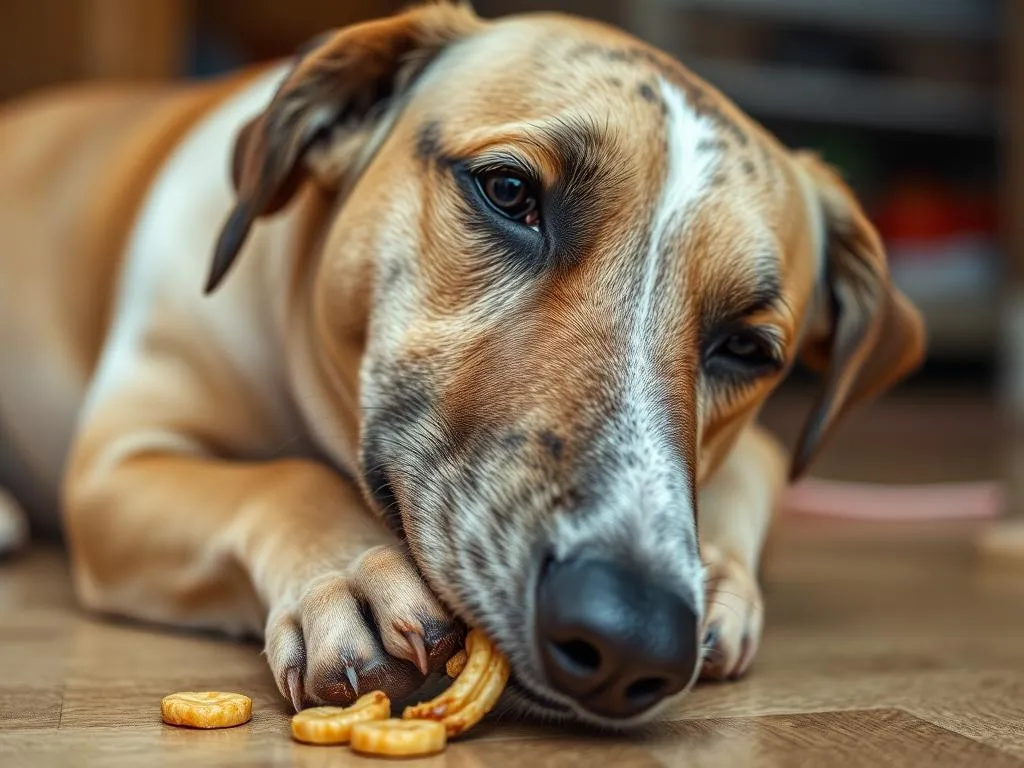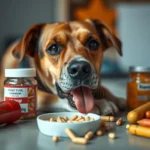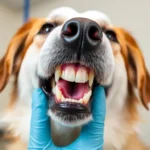
Understanding your dog’s eating behaviors is crucial for ensuring their overall health and well-being. One common concern many dog owners face is the question: my dog doesn’t chew his food. This issue can stem from various factors, including instinctual behaviors, health conditions, and environmental influences. In this article, we will explore the reasons behind this behavior, how to observe your dog’s eating patterns, and what steps you can take to encourage healthier eating habits.
Understanding Canine Eating Habits
Natural Instincts
Dogs are descendants of wolves, and their ancestors had to hunt for food. This instinctual behavior often manifests in how modern domestic dogs approach their meals. Wolves typically consume their prey quickly to avoid competition and potential threats. As a result, many dogs may not instinctively chew their food thoroughly, especially if they feel rushed or anxious during feeding times. Recognizing this instinct can help you understand why your dog may not be chewing his food properly.
Factors Influencing Eating Behavior
Several factors can influence a dog’s eating habits, including:
-
Age and Breed Considerations: Younger dogs and certain breeds may have different chewing behaviors. For example, puppies often chew more as they explore their environment and experience teething discomfort. In contrast, older dogs may develop dental issues that affect their ability to chew properly.
-
Health Conditions: Various health issues can lead to changes in eating behavior. Conditions like dental problems, gastrointestinal disorders, or food allergies can result in dogs avoiding the need to chew.
-
Environmental Factors and Stress: Dogs are sensitive to their surroundings. A noisy or chaotic environment can lead to anxiety during mealtimes, causing them to eat quickly and without chewing.
Common Reasons Why Dogs Don’t Chew Their Food
Medical Issues
If you notice your dog doesn’t chew his food, it may be a sign of underlying medical problems. Here are some common health concerns to consider:
-
Dental Problems: Issues such as tooth decay, gum disease, or broken teeth can make chewing painful for your dog. Regular dental check-ups are essential to maintain your dog’s oral health.
-
Gastrointestinal Issues: Conditions like nausea or abdominal pain can cause dogs to eat quickly to alleviate discomfort. If your dog seems reluctant to eat or shows signs of distress, consult your veterinarian.
-
Other Health Concerns: Obesity and food allergies can also affect how your dog eats. Overweight dogs may struggle to chew properly, while allergies can lead to selective eating behaviors.
Behavioral Factors
Behavior plays a significant role in how dogs approach their food. Some possible behavioral factors include:
-
Eating Too Quickly: Binge eating is a common issue where dogs consume their food rapidly without chewing. This can lead to choking, gastrointestinal distress, and even obesity.
-
Anxiety or Stress-Related Behaviors: Dogs that are anxious or stressed may rush through their meals. Identifying the source of their anxiety—whether it’s noise, other pets, or changes in routine—can help you create a more calming feeding environment.
-
Picky Eaters and Food Preferences: Some dogs may develop preferences for specific textures or flavors. If they find their food unappealing, they may skip chewing altogether.
Food Quality and Type
The type and quality of food can influence your dog’s chewing habits. Consider the following:
-
Impact of Kibble Texture and Size: Kibble that is too small may be easy for your dog to swallow without chewing. Conversely, larger kibble may require more chewing, encouraging better eating habits.
-
Importance of Nutrition and Palatability: A balanced diet with appealing flavors and textures can encourage your dog to chew their food. Low-quality ingredients may lead to a lack of interest in meals.
-
Consideration of Homemade vs. Commercial Diets: Some dog owners opt for homemade diets, which can be more enticing for picky eaters. However, it’s crucial to ensure that these diets are nutritionally balanced.
Observing Your Dog’s Eating Patterns
Signs to Look For
Monitoring your dog’s eating habits can help you understand any issues they may be facing. Pay attention to:
-
Observing Chewing Behaviors: Take note of whether your dog is chewing their food or simply swallowing it whole.
-
Changes in Appetite or Food Interest: Sudden changes in appetite may indicate health issues or dissatisfaction with food.
-
Behavioral Signs of Discomfort: Watch for signs of discomfort, such as whining, pacing, or avoiding their food bowl.
Monitoring Feeding Time
Establishing a routine can help improve your dog’s eating behavior. Consider the following:
-
Recommended Feeding Schedules: Feed your dog at the same times each day to create a predictable routine.
-
How to Determine if They Are Eating Too Fast: Use a timer to track how long it takes your dog to finish their meal. If they are finishing in under five minutes, they may be eating too quickly.
Solutions and Recommendations
Consult with a Veterinarian
If your dog consistently doesn’t chew his food, it’s essential to consult with a veterinarian. A professional evaluation can help identify any underlying health issues. Your vet may perform:
-
Dental Assessments: Regular dental check-ups can help identify and treat dental problems early.
-
Gastrointestinal Examinations: If your vet suspects gastrointestinal issues, they may recommend tests to determine the cause of your dog’s discomfort.
Dietary Adjustments
Making the right dietary choices can encourage better chewing habits. Consider the following:
-
Choosing the Right Food: Select kibble with the appropriate texture and size for your dog. Consult with your veterinarian for recommendations tailored to your dog’s specific needs.
-
Transitioning to a Different Diet Safely: If you decide to change your dog’s diet, do so gradually to avoid gastrointestinal upset. Mix the new food with the old food over several days, gradually increasing the proportion of the new food.
Behavior Modification Techniques
Implementing behavior modification techniques can encourage your dog to chew their food properly:
-
Slow Feeder Bowls and Puzzle Toys: These tools can slow down your dog’s eating pace, promoting chewing and preventing binge eating.
-
Creating a Stress-Free Eating Environment: Ensure that your dog can eat in a quiet, comfortable space free from distractions and stressors.
-
Training and Reinforcement Strategies: Positive reinforcement can encourage your dog to chew their food. Reward calm and slow eating behaviors with praise or treats.
Preventative Care for Better Eating Habits
Regular Vet Check-ups
Routine veterinary visits are essential for maintaining your dog’s health. These check-ups help in:
-
Importance of Routine Dental and Health Check-ups: Regular dental cleanings can prevent dental issues that affect chewing.
-
Monitoring Weight and Overall Health: Keeping track of your dog’s weight can help identify potential issues early.
Maintaining a Healthy Diet
A balanced diet is crucial for your dog’s overall health. Here are some guidelines:
-
Guidelines for Balanced Nutrition: Ensure that your dog’s diet includes high-quality protein, healthy fats, and essential vitamins and minerals.
-
Recommendations for High-Quality Dog Food: Look for brands that offer clear ingredient lists and meet the standards set by the Association of American Feed Control Officials (AAFCO).
Enriching Your Dog’s Environment
Providing mental and physical stimulation can improve your dog’s overall well-being:
-
Providing Mental Stimulation through Play: Engage your dog in interactive games and activities to reduce boredom and anxiety.
-
Reducing Stress Factors in the Home: Identify sources of stress in your home environment and make adjustments to create a more peaceful atmosphere for your dog.
Conclusion
Understanding why your dog doesn’t chew his food is essential for ensuring their health and happiness. By observing their eating habits, consulting with a veterinarian, and making dietary adjustments, you can help your dog develop healthier eating behaviors. Remember to maintain regular vet check-ups and provide a balanced diet to promote optimal health. A proactive approach to your dog’s care will lead to a happier, healthier life for your furry friend.









